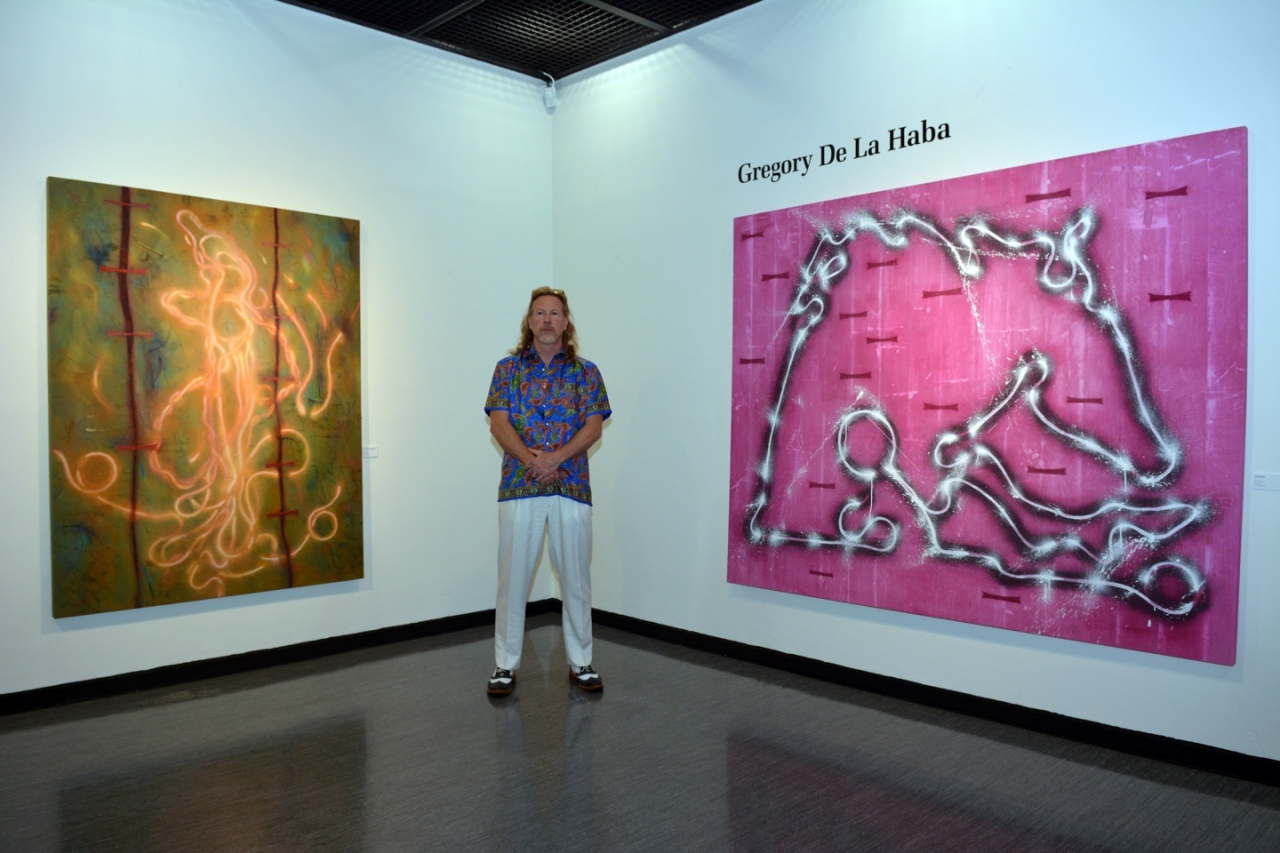 |
Gregory de la Haba poses with his work at Hangaram Art (Gregory de la Haba ) |
New York artist Gregory de la Haba’s first show in Seoul is underway at Hangaram Art Museum of the Seoul Arts Center, showcasing some 20 paintings completed over the last two years.
As was the case for many people around the world, the pandemic period was a productive one for de la Haba, who set up a studio inside his garage at the back of his house in the borough of Queens when he could not travel to his studio in Brooklyn, New York.
Unable to travel or meet friends, de la Haba’s focus was narrowed.
“I really had a breakout two years where I painted every single day and it just elevated my painting to a whole new level,” de la Haba said Tuesday in an interview with The Korea Herald at a cafe in southern Seoul.
De la Haba frequently referred to energy, life and spirituality in talking about his work. His art is charged with energy, pulsating with life and light. Expressing satisfaction with the responses of visitors at the show’s opening Saturday, he said, “They feel the sense of optimism and hope that I want to instill in my work.”
De la Haba trained in the methods of the old masters, learning to give form to life.
But an encounter with a Mark Rothko painting changed everything. “I thought my life had to start over again,” he said. Rothko was a 20th-century American abstract painter.
But before that, it made him stop painting, so depressed and discouraged was he with his work. He turned to the race tracks and drinking to find relief. He and his wife Teresa own and operate McSorley’s Old Ale House in the East Village, a haunt of well-known and unknown artists alike.
It would be two years before he was jolted back to life by a chance meeting with photographer Peter Beard, who saw his portfolio and said, “Pretty art school stuff, don’t you think?”
De la Haba said he knew Beard was right. “I knew that I wasn’t doing anything unique, I wasn’t doing anything cutting-edge.” That was in 2001. De la Haba has been doing unique, cutting-edge stuff ever since.
“Painting, at the end of the day, is a visual language and a visual vernacular. And every great artist, whether they’re traditional or abstract, they have their unique language that you can tell,” de la Haba said.
And he thinks he has found his own, especially since he quit gambling and drinking. “I feel that my unique language is really finally starting to develop,” he said.
De la Haba was signed by Geuer & Geuer Art, a major gallery in Germany last year, and has a museum show at Osthaus Museum Hagen, a contemporary art museum founded in 1902, in the works for next year.







![[Today’s K-pop] Blackpink’s Jennie, Lisa invited to Coachella as solo acts](http://res.heraldm.com/phpwas/restmb_idxmake.php?idx=644&simg=/content/image/2024/11/21/20241121050099_0.jpg)